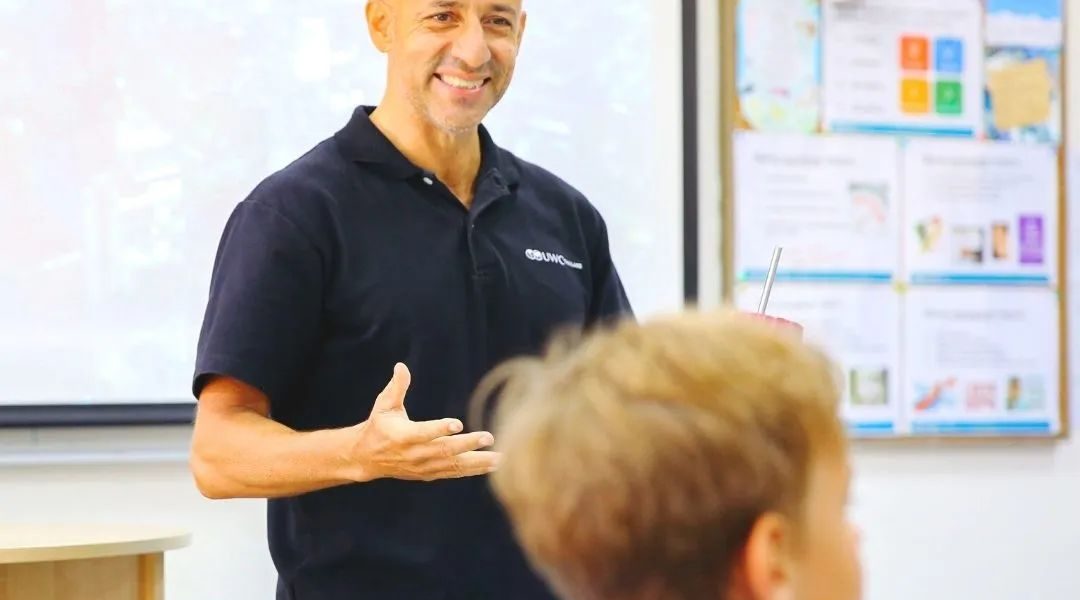The Journey to English Proficiency at UWC Thailand
泰国世界联合学院(UWC THAILAND)的英语精通之旅
by Nicolas Frangoudes – UWC Thailand Intensive English Programme Teacher
作者:Nicolas Frangoudes – 泰国世界联合学院英语强化课程教师
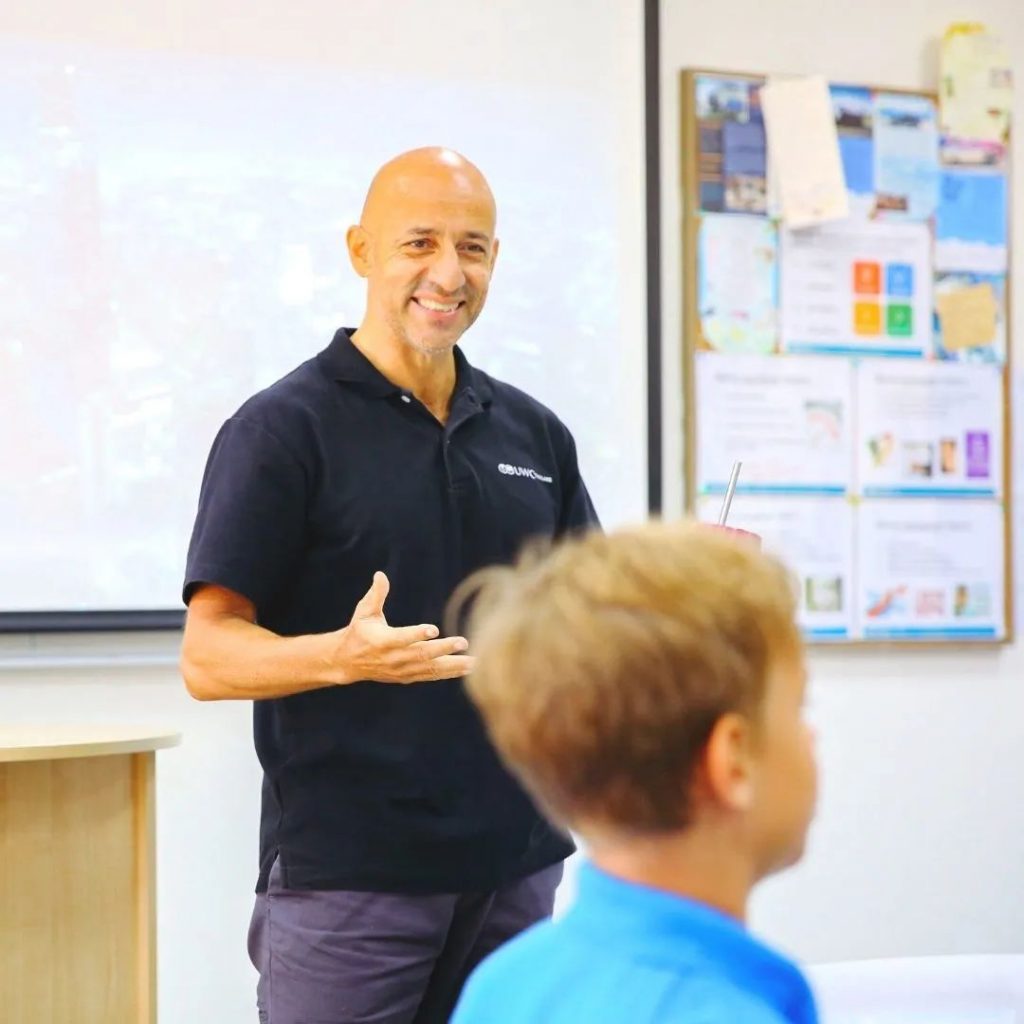
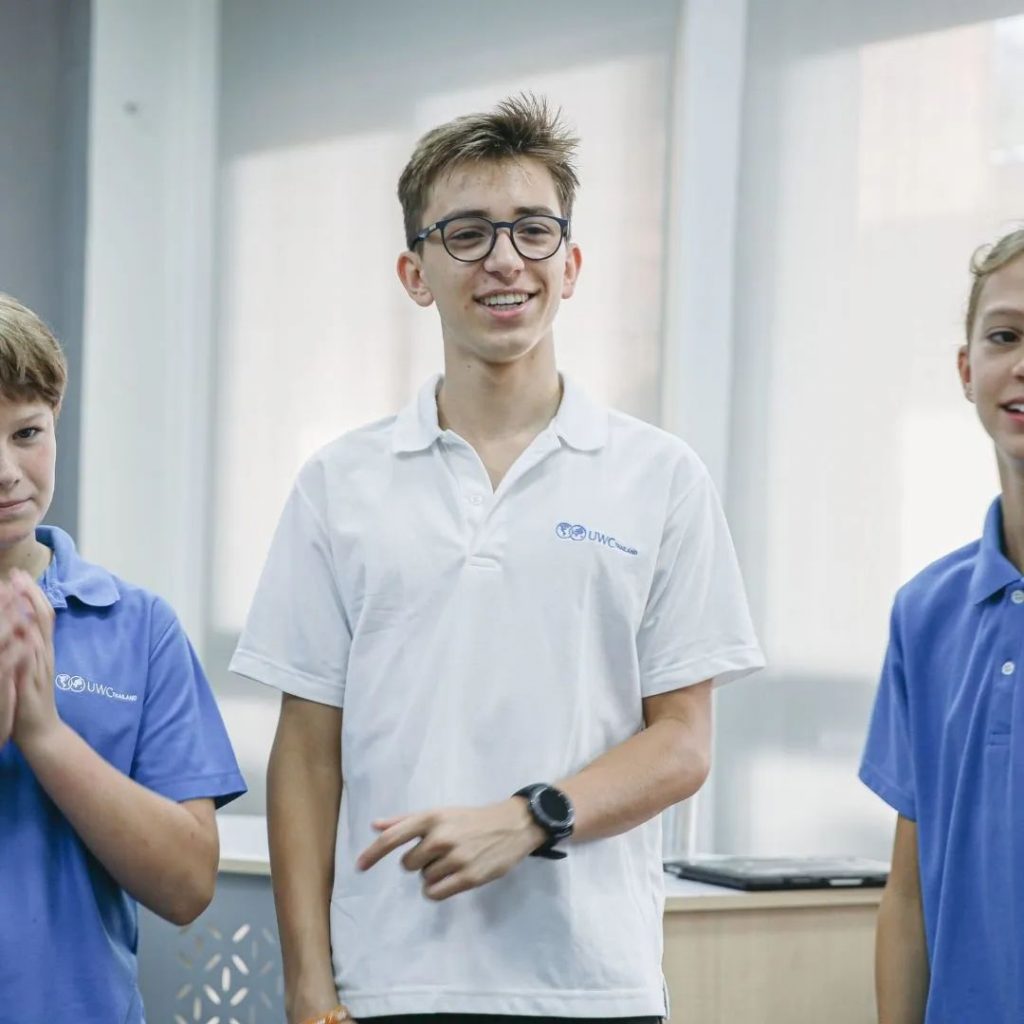
We are all impressed when someone speaks several languages yet the vast majority of the British and American population speak only one language. Here at UWC Thailand most of our MYP and DP students can operate in at least two languages and many are fluent in three or even four. This aligns closely with our school mission, which ‘makes education a force to unite people, nations, and cultures for peace and a sustainable future’. But, this does not happen without English language competence, strong communication skills, and cultural understanding.
当一个人能说好几种语言时我们都会印象深刻,而绝大多数英国人和美国人都只会说一种语言。在泰国世界联合学院(UWC THAILAND),我们大多数中学项目(MYP)和大学预科项目(DP)的学生至少能精通两种语言,还有很多人能流利地掌握三种甚至四种语言。这与我们学校的使命密切相关,即“让教育成为团结人民、国家和文化的力量,以实现和平和可持续的未来”。但是,如果没有英语语言能力、较强的沟通能力和文化理解能力,这是不可能实现的。
The IB programme is academically rigorous for native users of English; so just imagine what it must be like for a student that is learning English as a second or third language. We support these students closely to help them on this challenging journey, sequentially equipping them with key language and study skills along the way.
IB课程对于母语为英语的使用者来说学术是严谨的;所以想象一下,如果一个学生把英语作为第二或第三语言来学习,会是什么样子。我们全力支持这些学生,帮助他们在这充满挑战的旅程中,循序渐进地掌握关键的语言和学习技能。
Our greatest satisfaction remains seeing second language English learners’ progress from a ‘basic’ to a ‘proficient’ level, unlocking their academic potential. When a student can do this, it says a lot about them as a student, as a learner and as a person.
我们最大的满足感仍然是看到英语作为第二语言的学习者从“基础”水平提高到“熟练”水平,释放他们的学术潜力。当一个学生能够做到这一点时,这说明了他们作为一个学生,一个学习者和一个人的身份。
This progress, however, takes several years and a great deal of commitment. Students must have a strong desire to learn a language and must be genuinely interested in it. They must take risks in the classroom and be willing to make mistakes, which is part of the learning process. However, students must also be equally committed outside of the classroom, using newly acquired language in as many authentic situations as possible and committing to regular private reading.
然而,这一进展需要几年的时间和大量的投入。学生必须对一门语言有强烈的学习欲望,并且必须真正对它感兴趣。他们要在课堂上承担风险,愿意犯错,这是学习过程的一部分。然而,学生在课堂之外也必须同样投入,在尽可能多的真实情境中使用新习得的语言,并投入到定期的个人阅读中。

It is also important to understand the difference between knowing a few phrases in a language and being academically proficient. Let’s take speaking as an example. Fluency in speaking is sometimes referred to how smoothly a second language learner can speak on a variety of topics in real-time. While fluency may denote a degree of proficiency, it does not automatically imply accuracy, nor does it imply grammatical range. For the academic needs of our students, accuracy and range are both very important requirements and our English programme makes provision for both.
同样重要的是,了解掌握一门语言中的几个短语和在学术上精通之间的区别。以口语为例,口语流利度有时指的是第二语言学习者在各种话题上的实时流利程度。虽然流利度可能意味着熟练程度,但并不意味着准确,也不意味着符合语法规则的范围。对于我们学生的学术需求,准确性和广度都是非常重要的要求,我们的英语课程为这两者都提供了条件。
In addition, students need to learn how to write; they need to learn how to construct opinion or comparative essays, to write reports, convincing letters, emails, reviews and creative stories. Furthermore, students have to complete personal projects and extended essays that require more advanced writing skills. They need to learn pre-writing skills such as researching and planning, how to take notes, how to make a lexical choice and construct interesting and accurate pieces of writing. This is no easy task.
此外,学生需要学习如何写作;他们需要学习如何构建观点或比较论文、撰写报告、有说服力的信件、电子邮件、评论和创造性的故事。此外,学生必须完成具备更高写作技巧的个人项目和扩展性论文。他们需要学习写作前的技能,如研究和计划,如何记笔记,如何选择词汇,并构建有趣和准确的文章。这可不是件容易的事。
Then there is reading proficiency, probably one of the most important skills a UWC Thailand student needs. They have to read and understand complex texts, make inferences, summarize, understand register and audience. They have to understand subject content and course materials and commit to regular reading. Unless a student is a proficient reader, further education becomes less realistic. Students that enjoy and commit to reading, will improve at a faster rate and cope better with the academic language demands of school and further education, which is why we strongly encourage students to read.
其次是阅读能力,这可能是泰国世界联合学院学生需要的最重要的技能之一。他们必须阅读和理解复杂的文本,进行推理,总结,了解语域和受众。他们必须理解学科内容和课程材料,并定期阅读。除非学生是一个精通阅读的人,否则继续教育就没有实际意义了。喜欢并投入阅读的学生,将以更快的速度提高,并更好地应对学校和继续深造需要用到的学术语言水平,这就是为什么我们强烈鼓励学生阅读。
So, in a nutshell, students need to be proficient in reading, writing, speaking and listening. Additionally, they must overcome shyness, inhibition, pronunciation challenges and operate in a class with other native speakers. They are taught by a diverse group of teachers, all with different regional English accents. For all these reasons, achieving academic fluency in English is a colossal feat. But for those students that have undertaken this challenge, the rewards are very significant. One of our Thai students, who could hardly speak English at 11, worked incredibly hard at school and university and recently completed a doctorate in Environmental Management at Cambridge University, highlighting what’s possible if you commit.
因此,简而言之,学生需要精通阅读、写作、口语和听力。此外,他们必须克服害羞、拘谨和发音的挑战,并与其他母语为英语的人一起上课。他们的老师来自不同的地区,都有不同的英语口音。出于所有这些原因,达到学术上流利的英语是一个巨大的成就。但对于那些接受过这一挑战的学生来说,回报是非常显著的。我们的一个泰国学生在11岁时几乎不会说英语,但在中学和大学都非常努力,最近完成了剑桥大学(University of Cambridge)环境管理博士学位,所以需要强调的是只要你投入,一切皆有可能。
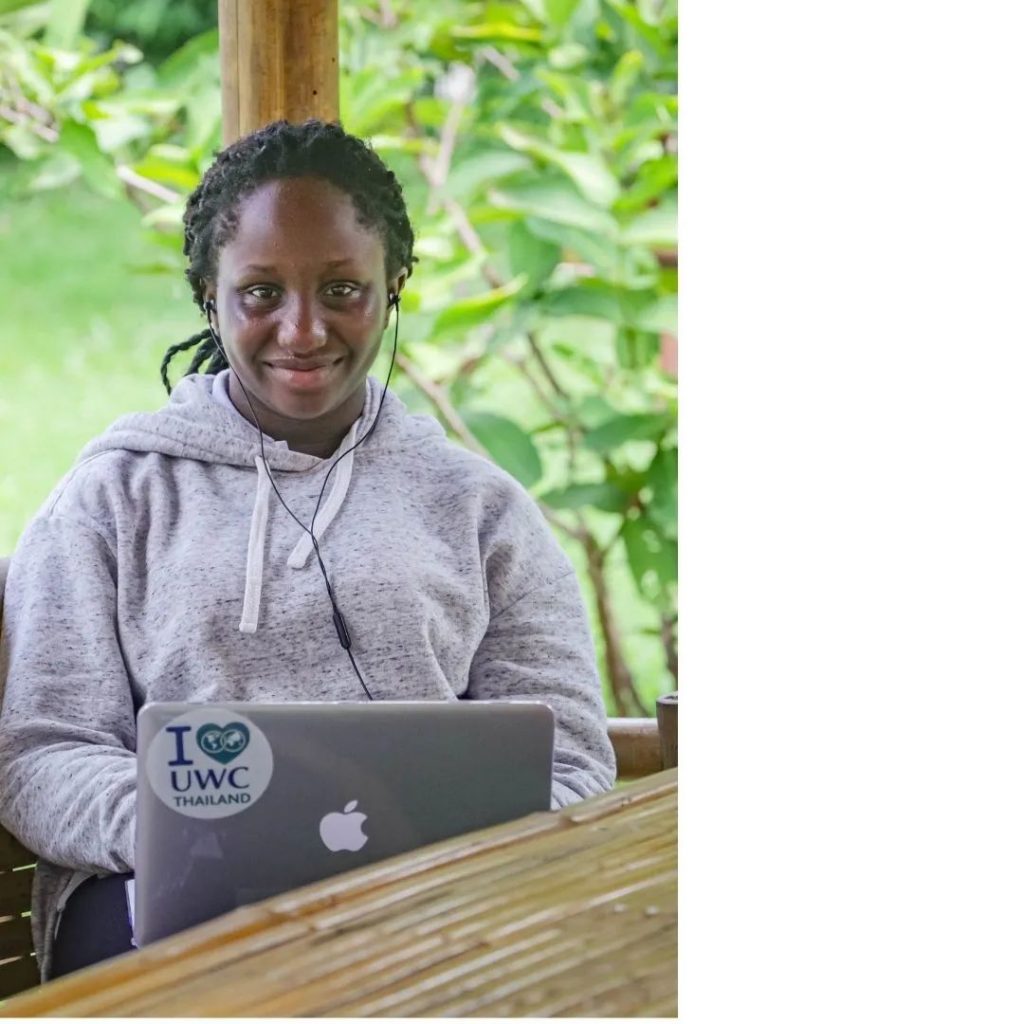
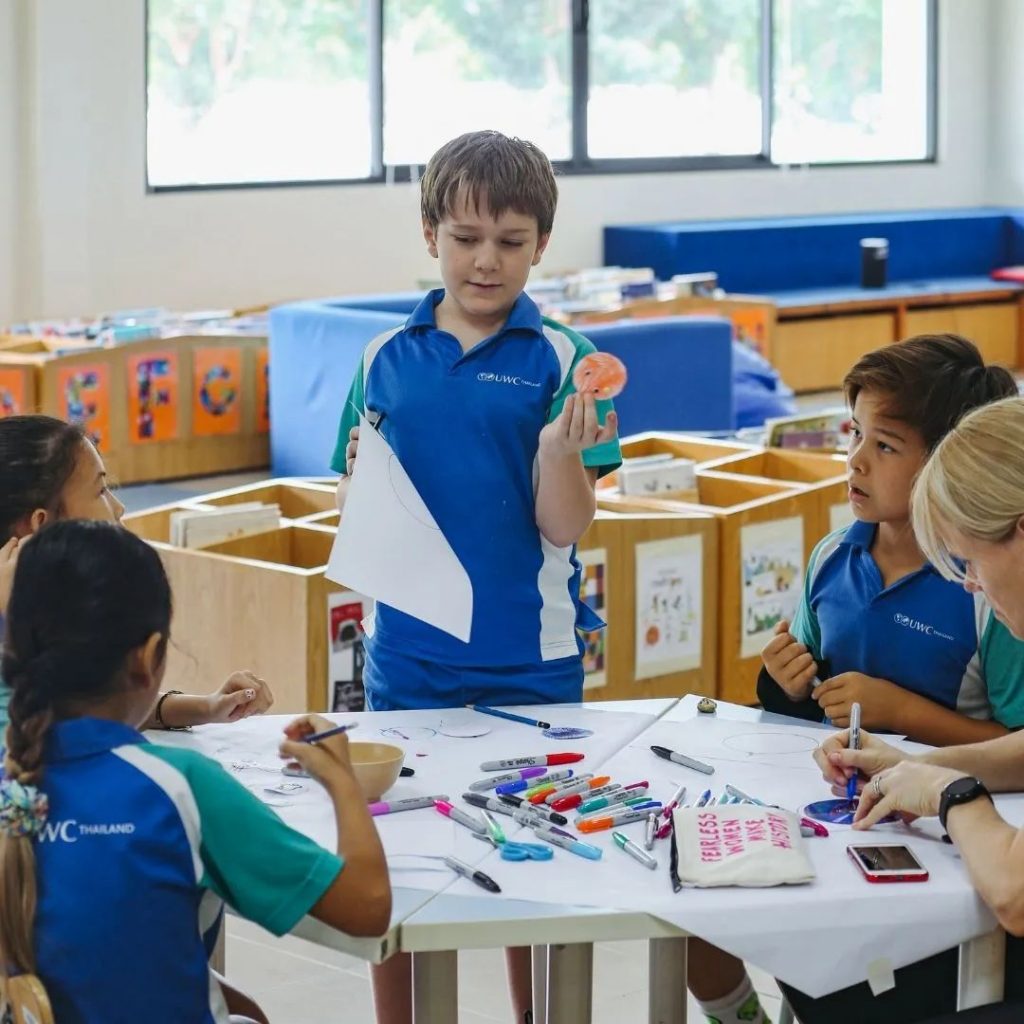
To help stage language progression for students, The Council of Europe’s Common European Framework of References (CEFR) for Languages groups language learners into concrete proficiency levels, where fluency and accuracy are just two of many examined criteria. The CEFR – divides proficiency into six levels – A1, A2, B1, B2, C1, and C2. A corresponds to ‘Basic’ levels, B to ‘Independent’, and C to ‘Proficient.’
为了帮助学生实现语言进步,欧洲委员会的欧洲共同语言参考标准(CEFR)为语言学习者划分了具体的熟练程度,流利度和准确性只是众多测试标准中的两个。CEFR将熟练程度分为六个级别——A1、A2、B1、B2、C1和C2。A代表“基础”水平,B代表“独立运用”,C代表“熟练自如”
These internationally recognised levels help to set short term language goals for students and encourage gradual progression. According to research from the University of Cambridge English Language Assessment, it takes 200 guided hours for a motivated learner to advance from one level to the next. The keyword, motivated, as language acquisition varies dramatically between individuals.
这些国际认可的水平有助于为学生设定短期语言目标,并鼓励学生循序渐进。根据剑桥大学英语语言评估(University of Cambridge English Language Assessment)的研究,一个有动力的学习者需要200个小时的指导才能从一个级别提升到下一个级别。关键词,“有动力的”,因为语言习得因人而异。
Finally, although these language proficiency levels provide an excellent measure for assessing a student’s ability, the real test is when they have to use language in authentic situations. For instance, when a student designs and leads a 20-minute presentation to a group, sharing ideas with clarity and passion, and dealing with difficult questions with confidence. Or, when a student writes a strong opinion-based essay that is well constructed, interesting and evokes feelings in the reader. The ultimate test for many non-native English users is joining a Language A English and Literature class, and we are delighted that so many of our non-native English users have made this transition successfully.
最后,虽然这些语言能力水平为评估学生的能力提供了一个很好的方法,但真正的测试是当他们必须在真实的情况下使用语言。例如,当一名学生策划并领导一场20分钟的演讲时,他清晰且充满激情地分享自己的想法,并自信地处理难题。或者,当一个学生写了一篇基于强烈主观判断的文章,结构良好,有趣,并能唤起读者的情感。对于许多母语非英语的学生来说,最终的测试是加入语言A英语和文学课程,我们很高兴这么多母语非英语的学生已经成功地完成了这一转变。
Other Related Ariticles
The Journey to English Proficiency at UWC Thailand 泰国世界联合学院(UWC THAILAND)的英语精通之旅
The Journey to English Proficiency at UWC Thailand 泰国世界联合学院(UWC THAILAND)的英语精通之旅 by Nicolas Frangoudes…
Does the level of diversity matter when choosing an international school? Diversity of the student population is key to making the experience truly international for both staff and students. 选择国际学校时,多样性的程度重要吗? 学生群体的多样性是使教职员工和学生体验真正国际化的关键。
Does the level of diversity matter when choosing an international school? Diversity of…

